The Timeline of Chemistry: History of Chemistry
5/5/20258 min read


"Every expert was once a beginner- Expertise in chemistry, like in life, starts with curiosity and builds through every trial, error, and reaction."
Ancient Beginnings: The Origins of Chemistry
The origins of chemistry can be traced back to ancient civilizations, where the foundations of this scientific discipline were established through practices such as alchemy. Alchemy, a precursor to modern chemistry, emerged primarily in cultures such as ancient Egypt and China, representing an early attempt to understand the properties and transformations of matter. Alchemists were not merely proto-chemists; they combined elements of philosophy, mysticism, and medicine in their quest to manipulate materials.
In ancient Egypt, alchemy was practiced within the context of religious and spiritual beliefs. Alchemists sought to transform base metals into noble metals such as gold, which was often associated with immortality and divinity. This transformative process was underpinned by a metaphorical understanding of material change, reflecting the alchemists’ desire for inner transformation and the perfection of the soul. The Egyptian Book of the Dead and various papyri contain references to these practices, showing the intertwining of chemistry with their cultural and spiritual frameworks.
Likewise, in ancient China, alchemy took a unique form where practitioners were driven by motives that extended beyond material wealth. Chinese alchemists endeavored to discover the elixir of life, a substance believed to grant immortality. This pursuit reflected the holistic view of health and longevity prevalent in Chinese medicine and philosophy. Notable figures such as Ge Hong contributed significantly to these early developments, authoring texts that detailed various chemical processes and herbal remedies aimed at enhancing life force.
These early alchemists laid the groundwork for chemical exploration, employing methods that would eventually evolve into systematic techniques utilized in modern chemistry. Their efforts marked a crucial phase in the timeline of chemistry, demonstrating an essential interplay between material practice and philosophical inquiry that would continue to influence the development of the discipline.
The Birth of Modern Chemistry in the 17th Century
During the 17th century, a pivotal transition began to unfold in the realm of chemical science, marking the shift from the esoteric practices of alchemy to a more empirical approach known as modern chemistry. This period was characterized by a focus on systematic experimentation and the scientific method, which set the stage for significant advancements in the understanding of matter and its properties. Key figures emerged during this time, notably Robert Boyle and Antoine Lavoisier, whose contributions were instrumental in shaping the foundations of modern chemical knowledge.
Robert Boyle, often regarded as the father of modern chemistry, played a critical role in redefining the discipline. His seminal work, "The Sceptical Chymist" published in 1661, challenged the traditional notions of classical elements and emphasized that matter is composed of various substances that could be analyzed through experimentation. Boyle's formulation of Boyle's Law illustrated the relationship between the pressure and volume of gases, which highlighted the importance of precise measurement in scientific inquiry. This approach underscored the necessity of reproducibility in experiments, a hallmark of the scientific method that would become central to the practice of chemistry.
Antoine Lavoisier further advanced the field with his systematic studies and publications in the late 18th century. His work established the law of conservation of mass, which stated that mass is neither created nor destroyed in chemical reactions. This principle was revolutionary, as it provided a solid foundation for the quantitative analysis of chemical reactions. Lavoisier's introduction of a systematic chemical nomenclature aided in the clearer communication of chemical ideas and facilitated the growth of the discipline. By advocating for accurate data collection and the use of controlled experiments, Lavoisier significantly advanced the methodology employed in chemical research.
In essence, the 17th century laid a critical foundation for modern chemistry, driven by the works of these pioneers. Their emphasis on the scientific method transitioned chemistry into a rigorous, empirical science that allowed for deeper insights into the nature of matter and its interactions.
19th Century Breakthroughs: The Age of Discovery
The 19th century was a pivotal era in the field of chemistry, characterized by remarkable discoveries and the establishment of chemistry as a legitimate scientific discipline. Among the milestones of this period was Dmitri Mendeleev's formulation of the periodic table in 1869. This landmark achievement laid a systematic foundation for understanding the relationships between various elements. Mendeleev’s periodic law not only organized elements by increasing atomic weight but also predicted the properties of undiscovered elements, illustrating the predictive power of chemical science.
During this time, the nature of the atom began to take shape. John Dalton's atomic theory, which posited that matter is composed of indivisible atoms, gained widespread acceptance, sparking interest in the study of atomic structure. As chemists delved deeper into atomic models, contributions from scientists such as J.J. Thomson, who discovered the electron in 1897, and Ernest Rutherford, who identified the nucleus in 1911, challenged and refined the atomic theory further. This research significantly advanced the understanding of atomic theory and paved the way for modern chemistry.
The emergence of organic chemistry as a distinct branch also transformed the landscape of the scientific community. Pioneers such as Friedrich Wöhler, who synthesized urea from ammonium cyanate in 1828, bridged the gap between organic and inorganic chemistry. His findings contradicted the prevailing belief that organic compounds could only be derived from living organisms, igniting discussions on the nature of life and chemistry.
Moreover, the emphasis on empirical research during the 19th century solidified chemistry’s status as a science based on observation and experimentation. The development of laboratory techniques and analytical methods allowed for more accurate experimentation, thus supporting the evolution of the discipline. Collectively, these breakthroughs not only enhanced our understanding of matter but also established a framework for future scientific exploration, marking the 19th century as a foundational period in the history of chemistry.
20th Century Advancements: Revolutionizing Chemistry
The 20th century marked a pivotal era in the evolution of chemistry, characterized by groundbreaking advancements that fundamentally transformed multiple domains of science and industry. This period saw the emergence of synthetic materials like plastics, which revolutionized manufacturing and consumer goods. The invention of nylon in 1935 and polyethylene during World War II exemplifies how chemical innovations paved the way for new materials that were not only durable but also versatile, leading to their widespread adoption in everyday life.
Additionally, the development of antibiotics significantly altered the landscape of medicine. Penicillin, discovered by Alexander Fleming in 1928 and mass-produced during the 1940s, is often regarded as the first true antibiotic. Its introduction heralded a new era of bacterial infection treatment, drastically reducing mortality rates and altering public health outcomes worldwide. This pivotal discovery underscored the importance of chemistry in tackling pressing health issues and demonstrated the relevance of chemical research in improving human life.
Moreover, advancements in quantum chemistry during this century provided insights into atomic and molecular behavior that were previously unattainable. Enhanced computational techniques allowed chemists to model complex chemical systems with greater precision, which facilitated the design of new substances and drugs. Quantum mechanics not only refined the understanding of chemical bonding but also bridged the gap between chemistry and physics, fostering interdisciplinary collaboration.
Wartime research initiatives fueled many of these advancements, as increased funding and urgency drove innovations in chemical synthesis, explosives, and pharmaceuticals. The space race also played a crucial role, prompting developments in materials science, with an emphasis on creating compounds that could withstand extreme conditions. The cumulative impact of these efforts significantly broadened the horizons of chemical research and established a foundation for contemporary applications across various industries, illustrating how the 20th century shaped the future of chemistry.
Chemistry in the 21st Century: Challenges and Innovations
The 21st century has ushered in a myriad of challenges and remarkable innovations in the field of chemistry. As society grapples with pressing issues such as climate change, the role of chemistry becomes increasingly vital. Sustainable chemistry has emerged as a critical focus area, driving researchers to develop processes and materials that minimize environmental impact while maximizing efficiency. This paradigm shift is not merely an academic exercise; it is imperative for addressing the global urgency surrounding climate change.
Innovative approaches in green chemistry aim to reduce toxic byproducts and enhance energy efficiency in chemical processes. Techniques such as solvent-free reactions and the use of renewable resources highlight the commitment of modern chemists to sustainability. These advancements represent not only significant scientific progress but also align with global initiatives aimed at preserving our planet for future generations.
Moreover, the convergence of chemistry with fields like nanotechnology and biotechnology has led to groundbreaking innovations that benefit numerous sectors, including medicine, energy, and materials science. Nanotechnology, in particular, harnesses the unique properties of materials at the nanoscale, leading to improved drug delivery systems, novel catalysts, and enhanced energy storage solutions. Biochemistry's incorporation of chemistry into understanding biological processes further streamlines the development of new pharmaceuticals and therapies.
Interdisciplinary collaboration is instrumental in driving these advancements. Chemists are increasingly working alongside professionals from various fields such as physics, engineering, and environmental science. This cooperative approach fosters a more holistic understanding of complex challenges, enabling the formulation of multidisciplinary solutions that are both innovative and effective. As the world faces multifaceted issues, the collective expertise of diverse fields will be essential for pushing the boundaries of what is possible in chemical research.
Conclusion: The Future of Chemistry
As we reflect on the timeline of chemistry, it is evident that this field has undergone significant transformations, evolving from ancient practices to a sophisticated science that supports modern society. Chemistry, often referred to as the central science, bridges physics and biology, providing the fundamental principles that govern the interactions and transformations of matter. The advancements in chemistry have not only enriched our understanding of the natural world but have also facilitated remarkable innovations in technology, medicine, and environmental science.
Looking forward, the future of chemistry appears promising yet challenging. Continued research and innovation are essential; they pave the way for groundbreaking discoveries that can contribute to addressing global challenges, such as climate change, energy sustainability, and health crises. For instance, the development of green chemistry practices seeks to minimize environmental impact while maximizing efficiency in chemical processes. This represents a crucial step toward achieving sustainability, which is increasingly vital in our rapidly changing world.
Moreover, interdisciplinary collaboration within the realms of chemistry and other scientific disciplines will be pivotal in fostering innovation. As researchers explore the intricate relationships between chemical compounds and biological systems, breakthroughs in areas such as drug development and new materials are likely to emerge. This interconnectedness showcases the evolving nature of chemistry, making it an essential component in the pursuit of knowledge and technological advancement.
As we encourage readers to appreciate the critical role chemistry plays in our everyday lives, it is essential to recognize that this dynamic field is not static. Rather, it is a thriving discipline that holds the potential for significant contributions to society. By embracing innovation and fostering curiosity in chemistry, we can anticipate a future filled with possibilities that continue to unravel the mysteries of matter and its applications.
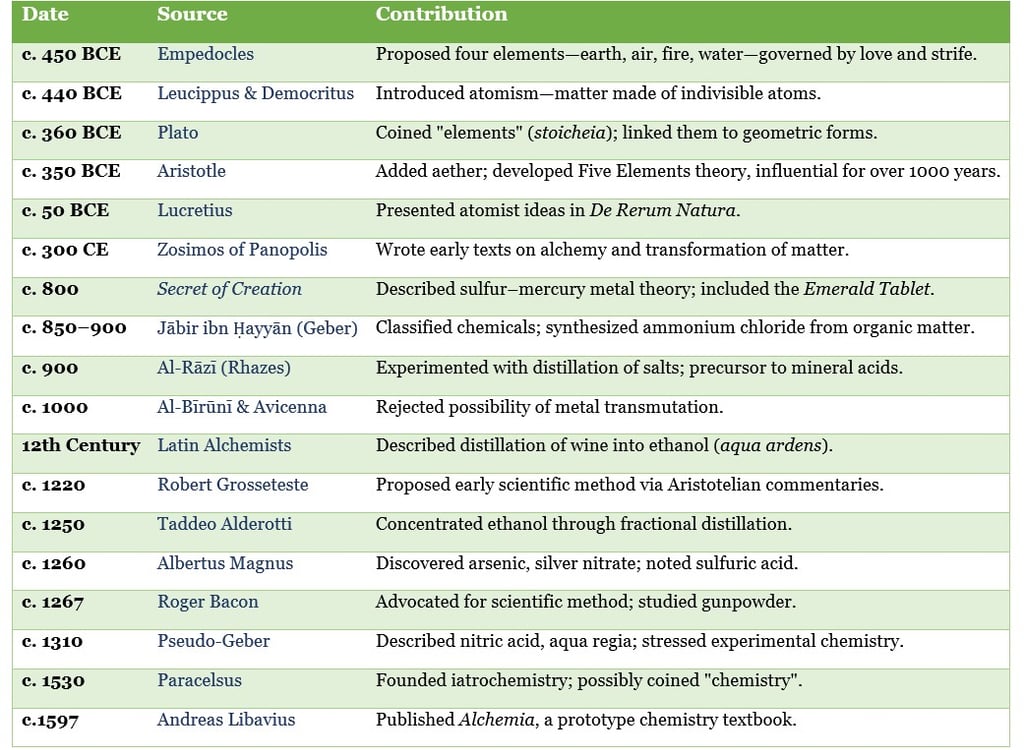

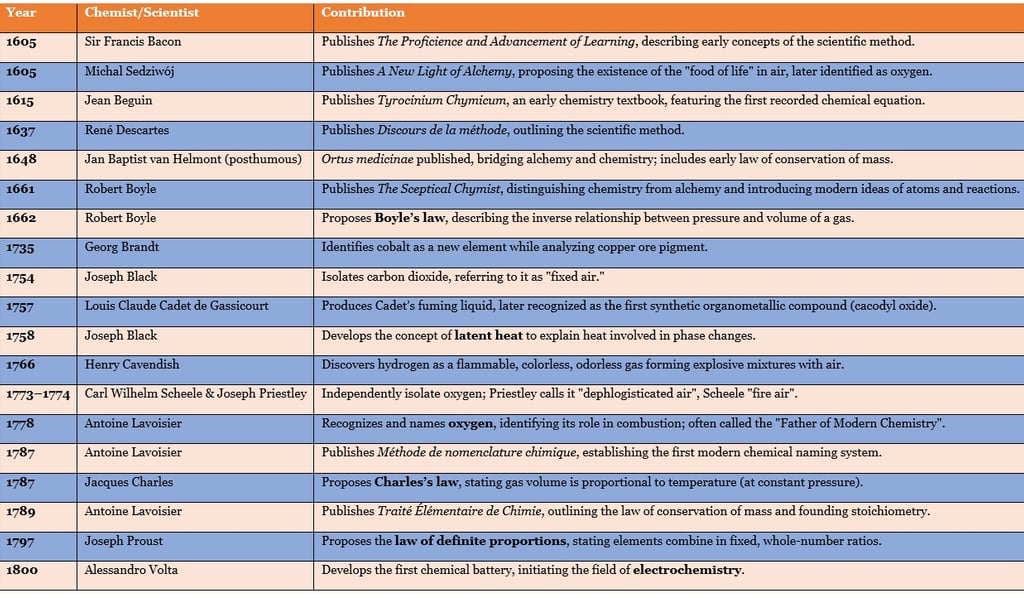

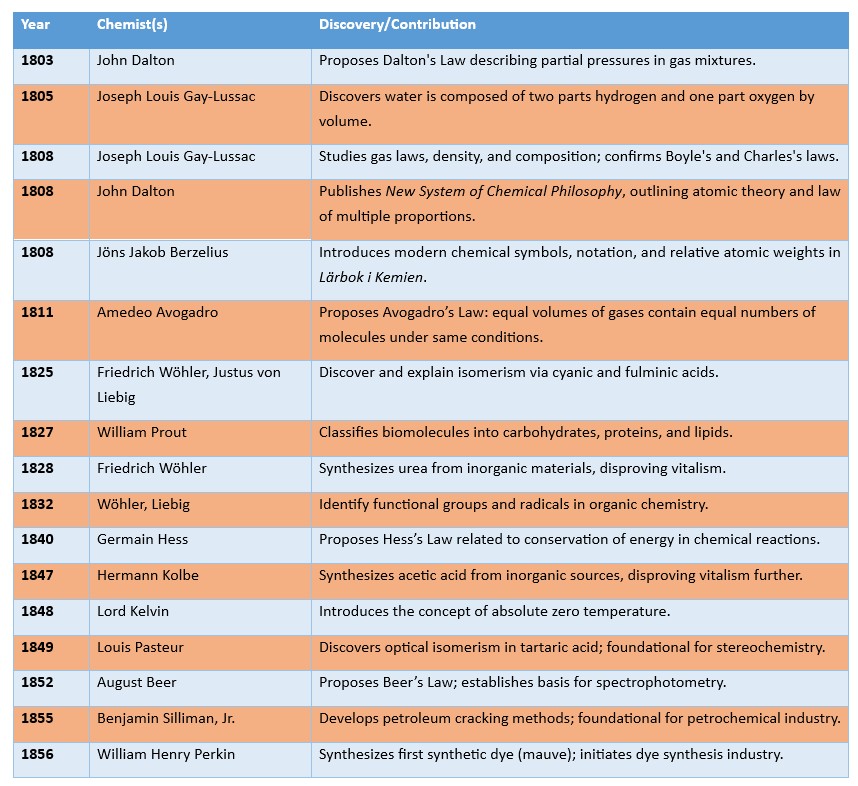

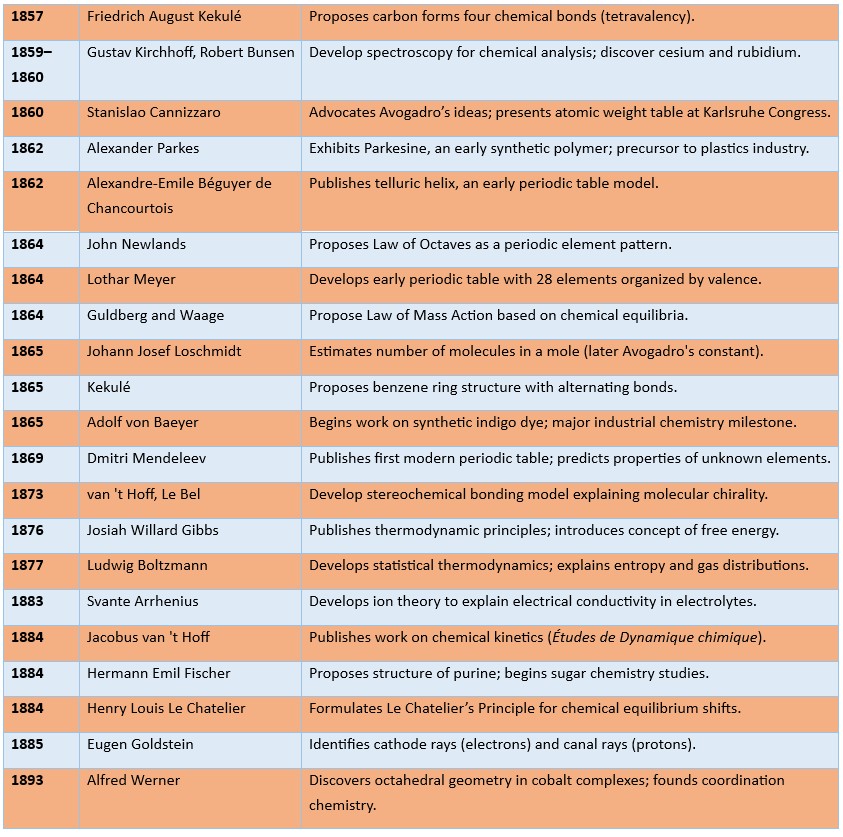



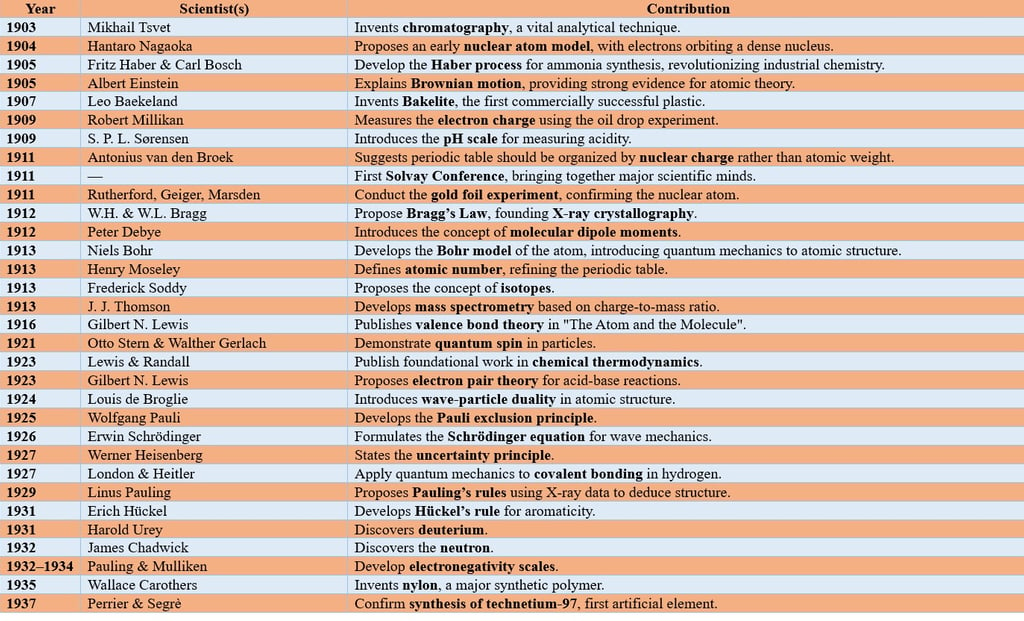

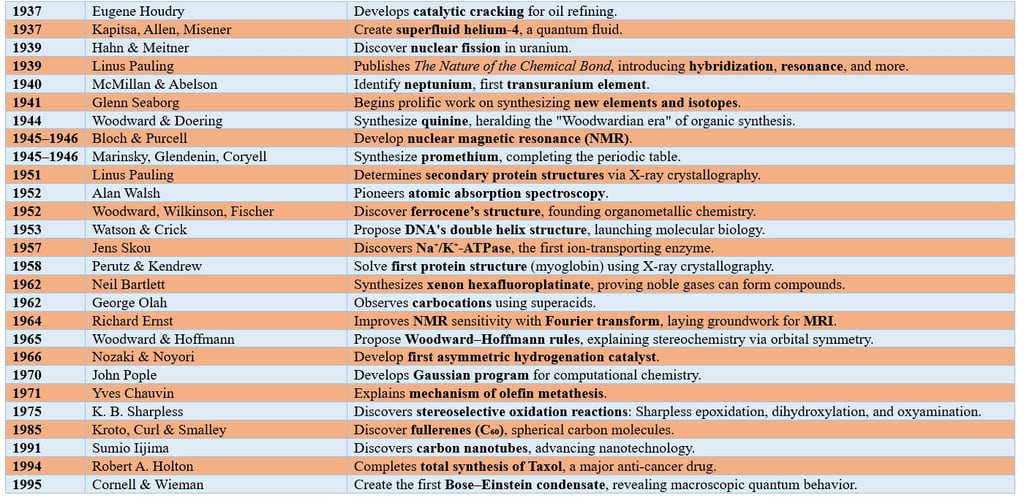



Contacts
Socials
Subscribe to our newsletter
support@otgscience.in
Copyright © 2024 otgscience.in
.
